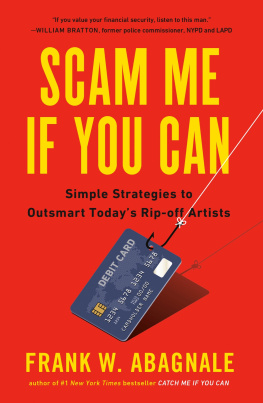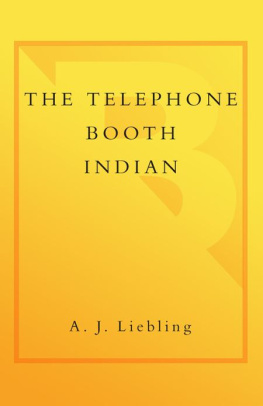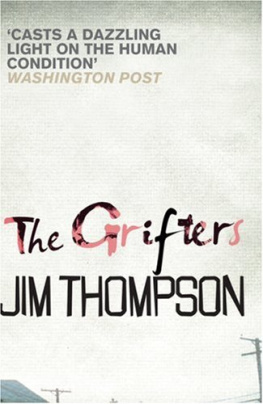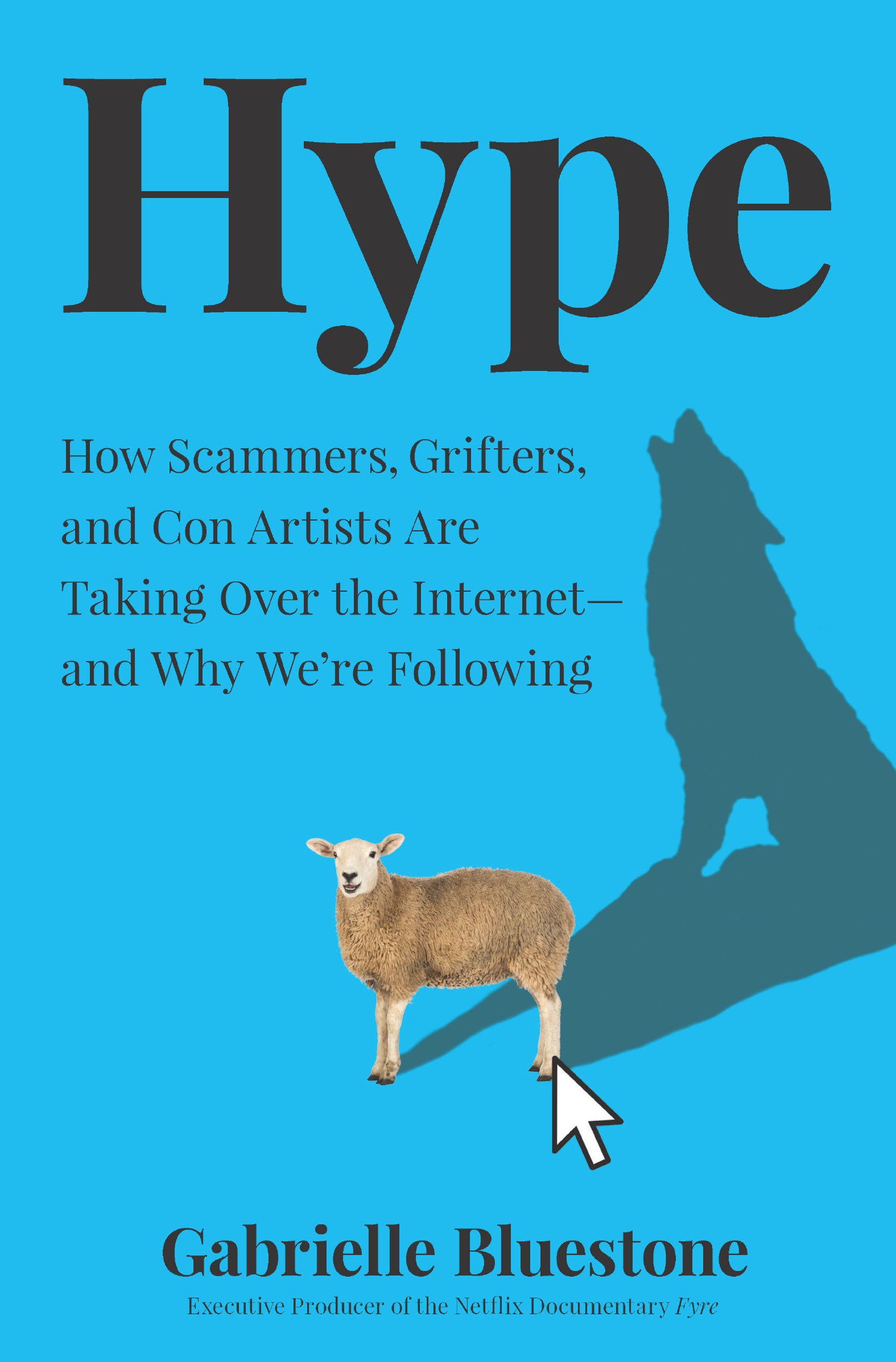
Hype is the best kind of nonfiction: juicy, sharp, savage and wildly entertaining, with a celebrity behaving badly on every page. What more could you want?
Cat Marnell, New York Times bestselling author of How to Murder Your Life
A deep dive into the depressing world of grifters, bullsh*t artists, plagiarists and long con experts turbocharged by the Internetand what, if anything, separates those scammers from some of our most respected captains of industry. Fyre Festival, Bluestone makes clear, may have been a low-water mark so far in the history of empty hypebut the tide, as ever, just keeps rolling out.
Anna Merlan, author of Republic of Lies: American Conspiracy Theorists and Their Surprising Rise to Power
Gabrielle Bluestone is one of the most gifted chroniclers of American culture working today because she is one of the coolest people alive. In Hype , she delivers the story of what the f*ck is wrong with us as only she can: with detailed reporting that skewers the subjects who deserve itand without an ounce of sanctimonywhile taking us for a ride so fun that, by the end, it takes you a second to realize that Hype may have indicted you, too (she is a lawyer, after all). We may not deserve this book, but we do need it. Hype is the most fun, most outrageous, andmost of allmost true book of the year.
Olivia Nuzzi, author and Washington correspondent, New York magazine
Gabrielle Bluestone is a journalist and licensed attorney from New York, whose writing has appeared in the New York Times, Washington Post, New York Observer, Sunday Times Magazine, Esquire, InStyle and Gawker. She is the Emmy-nominated producer of Netflixs Fyre and the associate producer of Different Flowers, winner of the 2017 Kansas City FilmFest Festival Prize.
Twitter: @G_Bluestone
Instagram: @GBluestone
Website: www.GabrielleBluest.one/
Hype
How Scammers, Grifters, and Con Artists Are Taking Over the Internetand Why Were Following
Gabrielle Bluestone

For my parents, Janet and Andrew Bluestone, who were right about (almost) everything.
Contents
Introduction
Like most people, my first glimpse of the Fyre Festival was on Instagram. The slick commercial venture exploded onto Americas social media feeds in December of 2016, as hundreds of verified influencersblue-check Instagram celebrities with tens of millions of combined followersstarted posting the same ambiguous burnt sienna square, suggesting their fans #joinme by purchasing tickets to the mysterious event. The festival organizers who had hired the internet stars to promote the event were promising ticket buyers two transformative weekends of fabulous luxury on a private island formerly owned by Pablo Escobar, where theyd be flown in on private jets, pampered by a dedicated wellness team and nourished with meals designed by celebrity chef Stephen Starr. A follow-up commerciala medley of half-naked twenty-something models interspersed with stock footage of other music festivalssubsequently went viral, and Vogue immediately deemed it the supermodel antidote to the winter blues, recommending the festival as a way to preemptively fix that Coachella FOMO. ( Vogue has since edited any references to Fyre from the piece, though it lives on in the URL.)
That was enough for me to know as a consumer that the event wasnt for me, and as a journalist, I probably would have let the whole thing pass me by, had a guy I had gone to high school with not put together his own little Instagram commercial on his private account, flaunting his VIP Artist Pass wristbands and outlining, slide by slide, all the outrageous amenities guaranteed by the festival organizers.
Suddenly I felt anxious. Was I about to miss the party of a lifetime? I clicked the link to find out.
What I found there made no sense. The site was offering $250,000 ticket packages with yachts and private chefs, yet it looked like it had been designed in a high-school coding class. The text promised slick, intoxicating luxury beyond comprehension, but outside of a commercial shoot interspersed with obvious stock footage, there were no photos to back any of up. The headliner for this supposedly exclusive luxury event was Blink-182, a band that peaked when I was in elementary school, which I will just say generally was...quite a long time ago.
Now I was extremely interested, but not for the reasons Fyre Media CEO Billy McFarland and his cohorts were hoping. Quite simply, I smelled a scam. And I wasnt the only one. At least two menone with connections to the music industry, and one with connections to the Bahamashad already taken the dramatic step of registering social media accounts and websites to anonymously warn consumers that this thing was never going to happen. It seemed so obvious something was terribly wrong.
The most incredible part of the whole thing was that no one was listening.
Even my editors at VICE News, focused as they were on international stories and war documentaries, were initially dismissive. A music festival that was overhyped? Not sure thats a VICE story, one of them told me. Ive joked that getting my initial story on the Fyre Festival published felt a lot like trying to convert to Judaism, but in the end it wasnt that far off base: I had to pitch it three times before the editorial beit din saw the now-legendary cheese sandwich photos on social media and decided it was go time. And even then, they only allowed me to cover it in text, rejecting requests to send a VICE News Tonight camera crew to the island to capture the disaster in real time. (Luckily, between the Fyre organizers own cameras and the hundreds of tech savvy millennials stranded in the gravel pit, there was plenty of footage to go around.)
Ive often wondered if the breakdown was due to my failure to appropriately describe the story I had stumbled into, or if the adults in the rooms failure to recognize it reflected just how normalized pure, substantive-free hype had become. After all, Fyres influencer blitz had yielded immediate returns on social media, which triggered national press coverage, which gave the whole endeavor a patina of legitimacy. Within hours of the Instagram onslaught, the Fyre Festival name was everywhereon Facebook, Instagram, and Twitter; on news websites; and even old-fashioned but still-coveted TV segments. Marketers involved in the campaign estimated 95 percent of the festivals tickets were sold in that first week, even though, as the world later discovered, the festival they sold consumers never even came close to existing. As we all know now, that divide between Instagram and reality resulted in the Lord of the Flies esque chaos seen round the world, as hundreds of well-heeled millennials were trapped in the Bahamas with not much more than a wet mattress and an Instagram Story to show for the thousands of dollars theyd invested in the experience.
But as I followed the story past the initial Bahamian disaster into Billy McFarlands felony arrest, surprise felony rearrest, and federal sentencing, it became clear to me that there was something bigger at play: the natural end point of a society primed to trust their own emotions over objective, verifiable facts, in a world that tends to value the signifiers of success over actual achievements.
I saw it as I broke the story of the Fyre Festival implosion for VICE News, and it continued as I executive-produced the Emmy-nominated Netflix documentary Fyre: The Greatest Party That Never Happened. Along the way, I learned a whole lot about how scams are thriving in the age of social mediaand how often weve collectively agreed as a society to treat hype as an indicator that were playing with the real deal.
Next page



